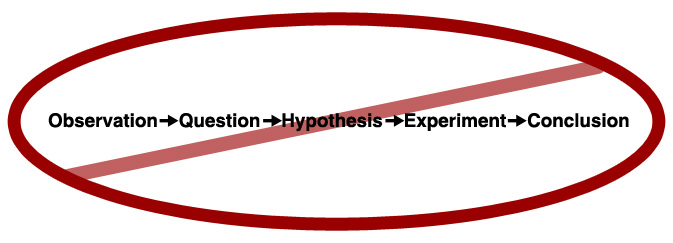Blog 3: Science
In addition, science is never objective, as human beliefs are inevitable from the process (Davis et al., 2019). I believe this is also an excellent metaphor for the teacher-student dynamic in classrooms. In other words, teachers are not the knowledge bank who constantly deliver knowledge, but should also be open and encouraging students to learn from each other. Doing so, also allows teachers to learn from the students. I believe everyone comes from different backgrounds and experiences. It is essential to make learning relevant to their life. One way to do this is to make science fun, so students are interested in engaging in it. For example, doing hands-on experiences enhances students' ability to make connections between the knowledge and their real life.
I believe the main point of this section of the course is that scientific inquiry is a messy process and requires individuals to revise their product throughout the process. I think this is the beauty of learning: students should not be afraid of making mistakes. It helps them to develop resistance and promote their perseverance. Put differently, the feeling of being stuck is powerful as it creates the conditions for individuals to reflect and unpack the reasons for being stuck, and thus learn from it. It is also a way of creating knowledge by posing questions and seeking answers. According to Davis et al. (2019), teaching is about designing the learning environments to encourage students to be designers of scientific inquiry by posing questions and seeking answers that matter to them and the world. Therefore, it is vital to make all students competent to create and change social norms to enhance their quality of life.In week 7, my partner and I had the opportunity to make outdoor inquiries during class. It was an excellent experience to walk around the campus to see how my everyday life and phenomena are interconnected with science. We took a picture of two different leaves and developed several questions about the sciences behind leaves and seasons. I will definitely do this type of activity in my future classes. I found it exciting and believe elementary students will also find it engaging. Students are asked to use cameras to capture the things they are interested in and, from there, explore and analyze the phenomenon to expand their skills in a new experience. Overall, I liked the idea of scientific inquiry, and I will incorporate it into my future teaching to enhance my student's learning experiences. It is all about making learning fun!






Comments
Post a Comment